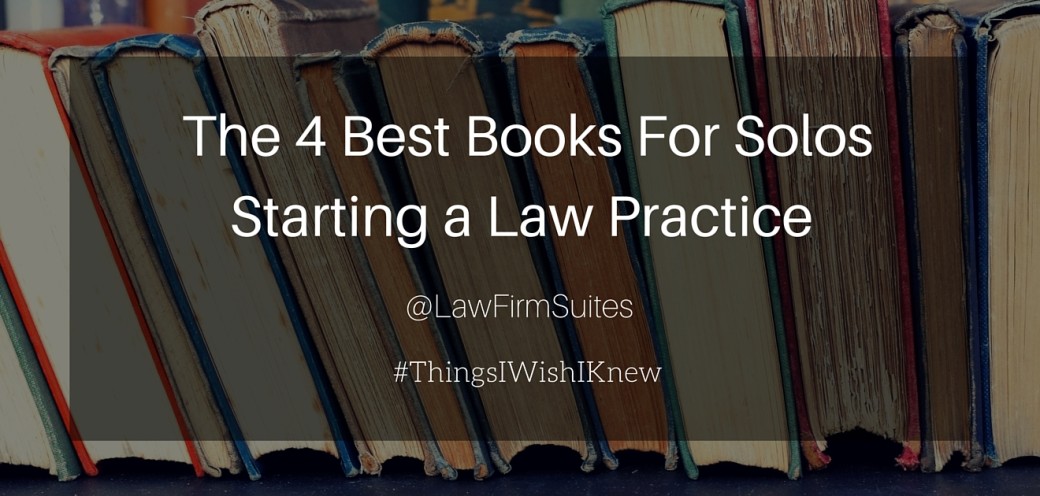In this week’s edition of Things I Wish I Knew, Joleena Louis discusses her top picks for the best books for starting a law practice.
One of the questions I get asked most often about starting a law practice is: “What books should I read?”
I’m an avid reader so before starting my practice, and even now, I will read anything that I think will help me be a better lawyer and businessperson.
Over the past few years I have read several books that made a significant impact on how I run my practice. Here are four of my favorites!
Reading is a fundamental part of the solo attorney profession. Click To TweetE-Myth Attorney by Michael E. Gerber
If I had to recommend only one book to the aspiring solo attorney, The E-Myth Attorney would be it.
It discusses the importance of working on your law practice, not just in it and gives very practical advice for building and growing a practice.
I first read this while I was still working at my old firm, read it again early in my practice, and read it a third time more recently. Each time I gleaned more insight on ways to improve my practice.
Getting Things Done by David Allen
Getting and staying organized can be the biggest challenge for solos starting a law practice. Chances are, before going solo you were employed by a firm. At that firm your job was to produce legal work that clients pay for. Spending time doing anything else was not profitable for the firm, so chances are most, if not all, the administrative details about running a law practice were taken care of for you.
Think about how difficult it was to stay on top of client work. Now throw legal marketing and firm admin into the mix, and you potentially have an organizational nightmare.
David Allen’s book, Getting Things Done, revolutionized the way I looked at organization and time management for my practice.
GTD is a method for organizing your to-dos, priorities, and your schedule in a way that makes them all manageable. One of GTD’s biggest benefits is that it makes it easy to see what you have on your plate and choose what to work on next. It also has a strong emphasis on getting your to-dos out of your head and into a system you can refer to. This clears your mind of any mental distractions that will keep you from working efficiently.
The key to staying organized is having a system. Allen’s GTD system seems to work great for entrepreneurs, including solo attorneys.
The key to staying organized is having a system #GTD Click To Tweet7 Habits of Highly Effective People by Steven R. Covey
I read the original version of 7 Habits of Highly Effective People which came out in 1990 and find that it’s still applicable today.
The book basically gives you 7 habits that will help change how you see and interpret the world, in turn making you more effective.
The biggest takeaway for me was discussion about being proactive versus reactive, which is certainly applicable in dealing with people and running a law practice.
How to Start A Law Practice by Jay Foonberg
I read How to Start A Law Practice at the end of last year because it came highly recommended by members of a networking group I belonged to.
Though some sections were outdated, I found it to be a very practical guide to starting a law practice and it made me think about some elements of my practice that could use improvement.
I’m sure there are many more that can be added to the list, but these are the books that have impacted me the most. As a solo, the best way to get ahead is to never stop learning.
What books inspired you in your solo practice? Comment below and tell us about some of your favorite reads!


